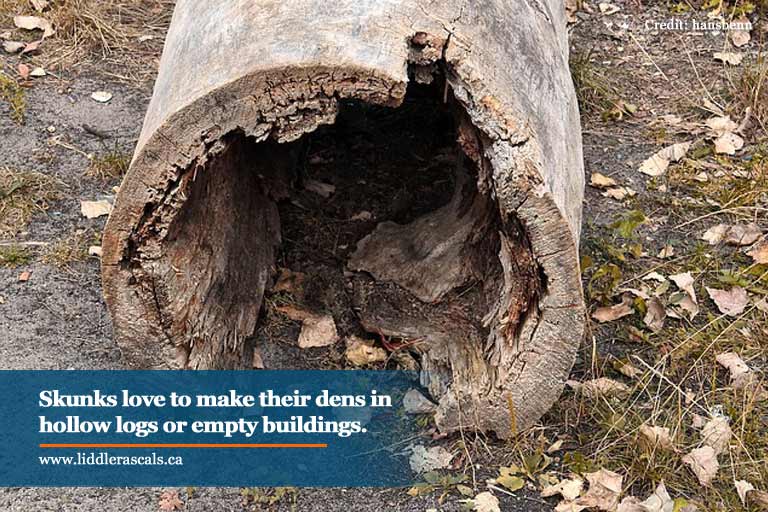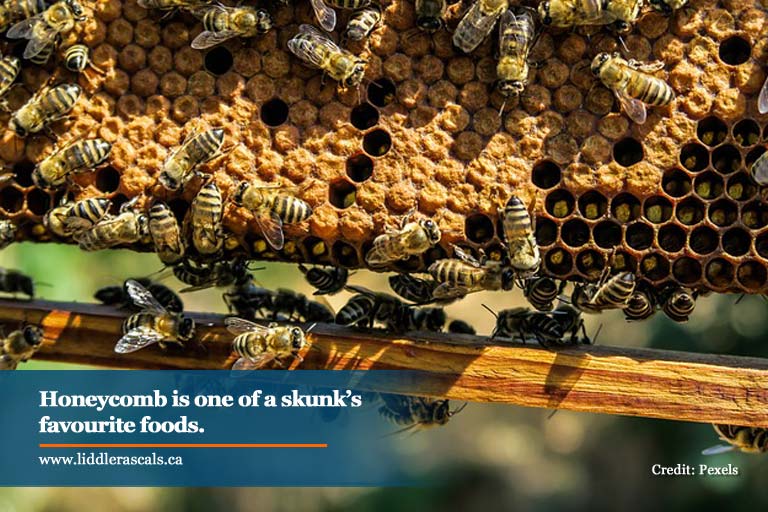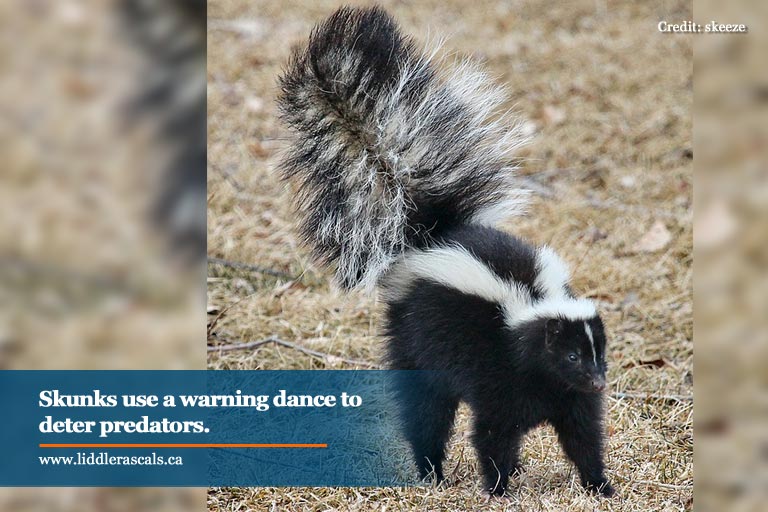How to Keep Skunks Out of Your Backyard
Skunks are one of those creatures that seem cute from a distance with their cute faces, curious nature, and bushy white and black tails. You don’t want to run into one unexpectedly, however, while putting out the trash, or you may end up stinking up the neighbourhood.
Skunks are native to North America and can be found in Canada, The United States, Mexico and in some parts of South America. The most distinguishing feature of a skunk is its striped black and white tail and the pungent spray that it uses to defend itself.
Where They Live
Skunks like to live around the edges of forests and woodlands, grasslands and can even be found in deserts. They like to make a home in hollow logs, abandoned burrows, empty buildings and under large rocks. They will live in any quiet place that can offer some protection from predators and keep out rain and snow.
If you find a skunk is living in your yard, you can fill up their hole with dirt to give them the message to hit the road. Do not do this in spring, however. There may be kits (infant skunks) in the den. In this case, it is best to contact a skunk removal expert to trap and remove the skunks.
Their Lifecycle
In the wild, skunks usually live to be 2 or 3 years old, but in captivity, they have been known to live up to 10 years. They are nearsighted and rely on their excellent sense of smell to find food and stay away from predators.
Apart from the mating season, skunks are usually solitary creatures. They also do not hibernate in winter but may snuggle up with other skunks in their dens to keep warm.
The mating season for striped skunks happens in February and March, and they usually have their babies in the spring between the end of March and early June. Skunk kits rely on a placenta to grow while in the womb, just like human babies do.
When born, kits are blind, deaf, and covered with fur. They can make their own musk at eight days old. Kits stay with their mothers until they are ready to breed themselves, which is usually a year.
They Are Nocturnal
Skunks like to forage and explore at night. They don’t want to be out and about during the day. They also don’t like bright lights and can often be scared away by a motion-sensing yard light or security lights. Some homeowners also
What They Eat
Skunks are omnivorous, which means they like to eat a variety of fruits and vegetables as well as insects and small mammals. Their diet changes depending on the season, and what they can get their little paws on. Skunks are excellent hunters and will use their sense of smell to find insects and hunt small mammals.
Did you know that one of a skunk’s favourite foods is honeycomb? Skunks will use their thick coat as protection against stings and help themselves to a sticky honey treat. They will go after fruits and vegetables in your garden, and an open garbage or compost bin is an all-you-can-eat skunk buffet.
Skunks also like to dig for grubs in the grass, which can also be an annoyance to anyone trying to keep a nice lawn. They use their excellent sense of smell to find the grubs under the ground and then use their sharp claws to dig funnel-shaped holes to get at the larvae.
How To Keep Skunks Away
The best way to keep skunks out of your garden is to remove all sources of food. Put a low fence around your vegetable garden to deter the little guys. Be sure to dig it down into the soil. Skunks can’t climb, but they can burrow under.
You can also use scent to deter skunks from your backyard. Anything smelling of predator urine will deter a mother skunk; so put some used kitty litter (or apple cider vinegar or ammonia) in a perforated bag close to where you think a skunk might be making their den. Sprinkling hot pepper, such as cayenne or chilli powder around the perimeter can keep them away.
Be sure to keep your compost bin and garbage securely covered. Take in any extra pet food or bird feed that might be lying around.
Skunk Communication
Skunks are very good at communicating with each other, and will stomp their feet, hiss, click their teeth, screech, squeal and grunt to get their point across. Skunks are not aggressive creatures and will not attack unless scared and provoked. If you encounter a skunk, the best thing to do is to slowly back away and give it space.
Skunks will also give you a warning dance, telling would-be predators to keep their distance. This includes stomping the ground, shaking their tail and even doing a handstand – to try and intimidate those trying to attack them.
Skunk Spray
Skunks are most well known for their powerful spray that lingers for days. This defence system shoots a pungent sulphur chemical up to 10 feet from their anal glands. They spray itself, apart from being extremely stinky is very irritating and can cause temporary blindness and is extremely flammable.
Skunks developed this trait because they are nocturnal creatures and more vulnerable to surprise predator attacks at night. Their white stripe points the way they spray and is a warning sign to other animals to back off.
What If You Or Your Pet Gets Sprayed?
If you or your pet are the unlucky recipients of a skunk’s spray, the best way to get rid of the offensive smell is to do it chemically. Using soap and water won’t do a thing, and tomato juice only masks the odour. The best way to get rid of the stench is to make a solution of hydrogen peroxide, water and baking soda to neutralize the chemicals.
Keeping A Skunk As A Pet
There are people out there who insist that skunks make excellent pets. They are curious, friendly and, if you remove their scent glands, they can be pleasant company. However, you should always check with your local laws before taking on a skunk as a pet, as keeping skunks or any wildlife is illegal in Ontario.
The most effective way to keep a skunk out of your back yard is to eliminate sources of food and to remove all safe areas for it to nest. If that doesn’t work, it might be time to call in the experts.
Expert Skunk and Wildlife Removal in the Greater Toronto Area
We are available 24 hours a day, seven days a week.
Call us at (416) 356-5886 or contact us online.










Leave a Reply
You must be logged in to post a comment.